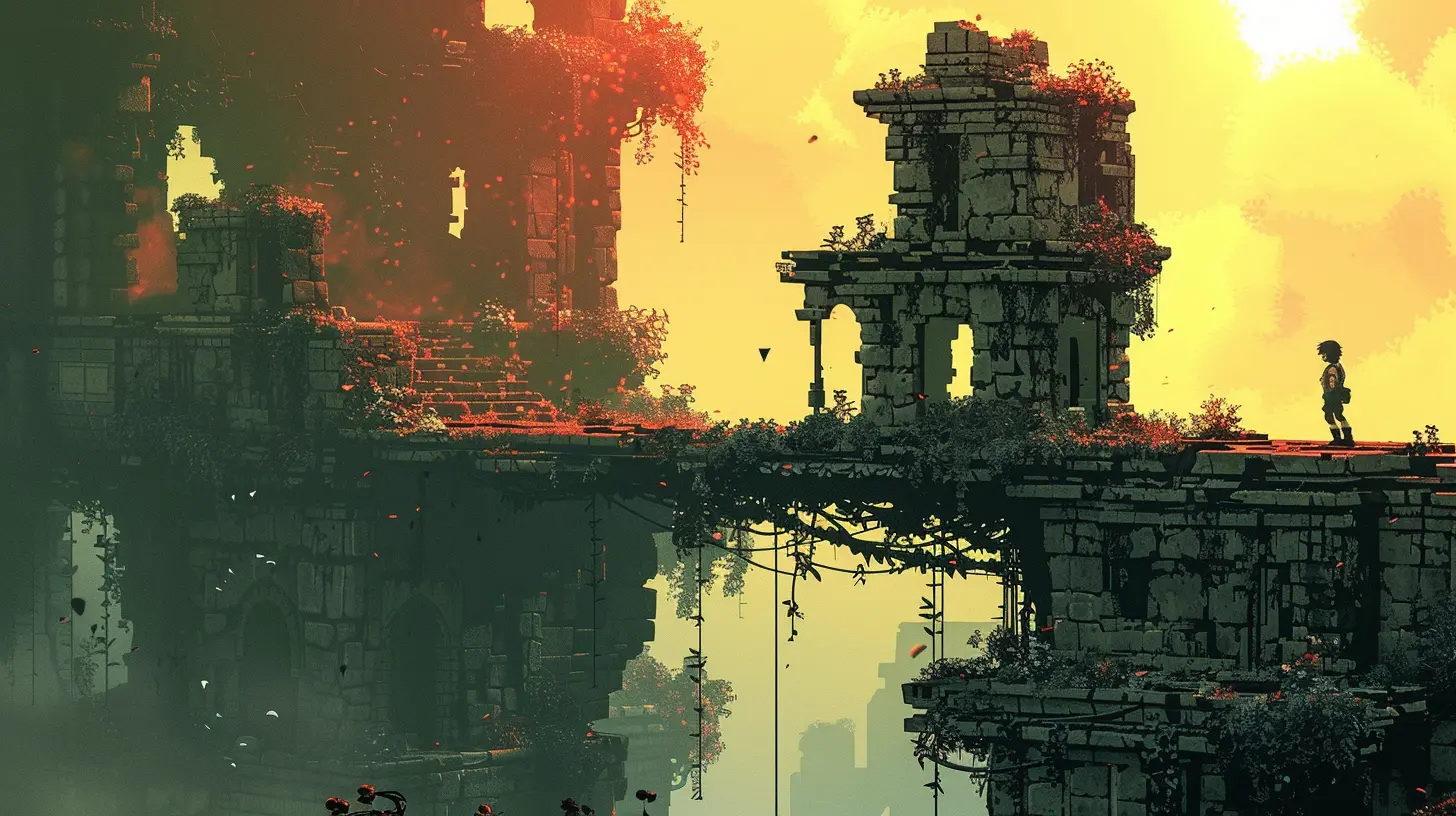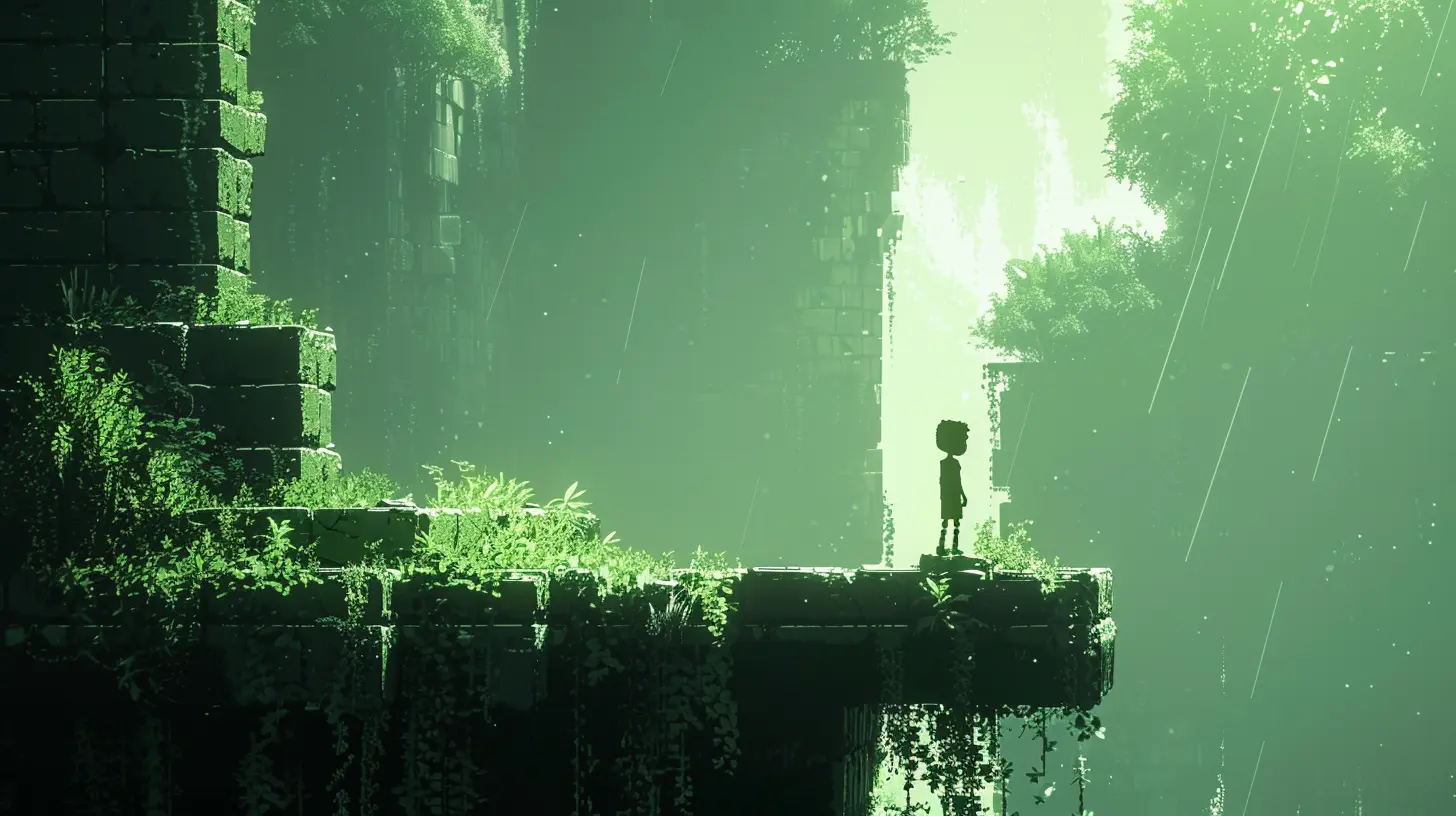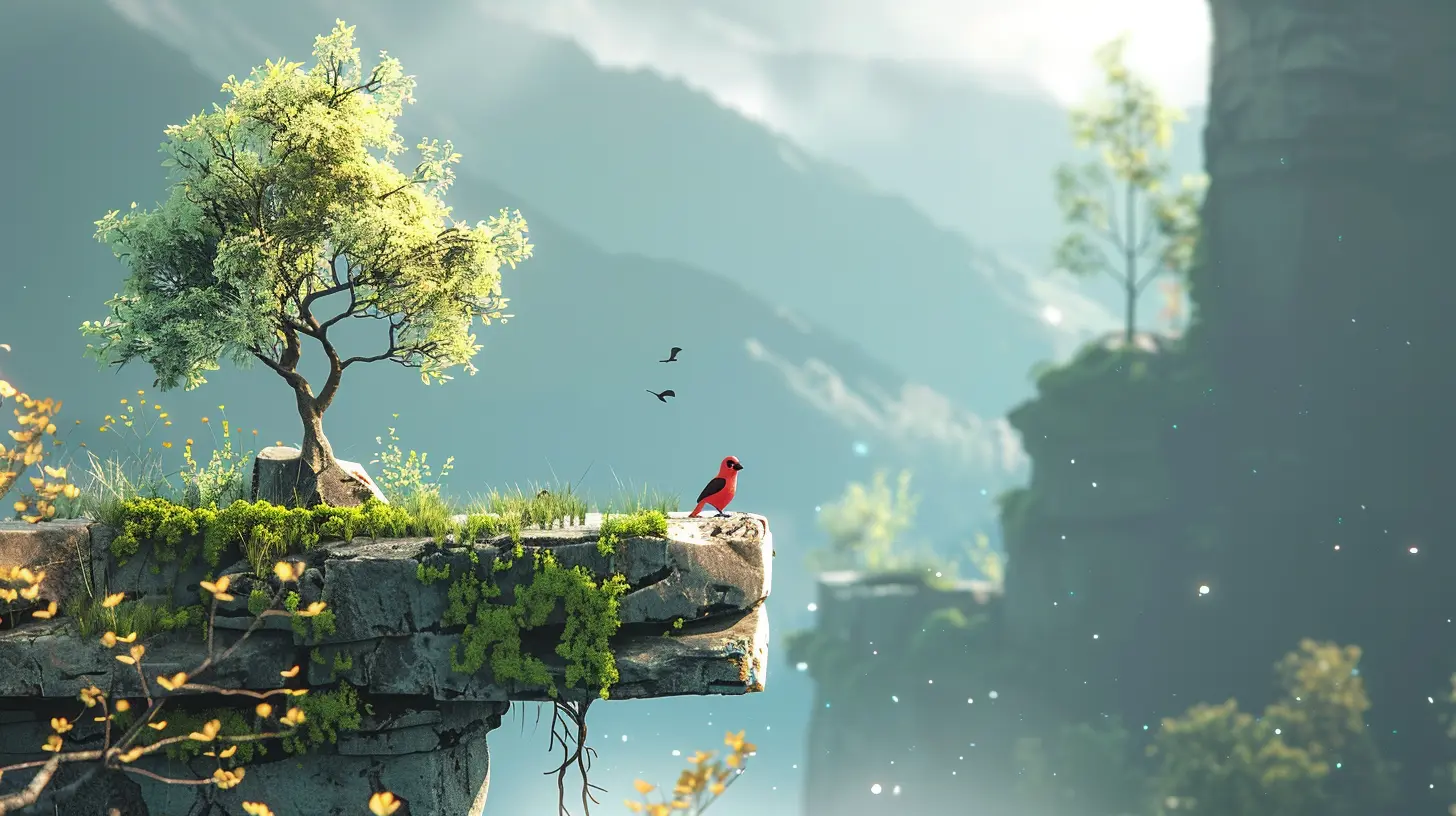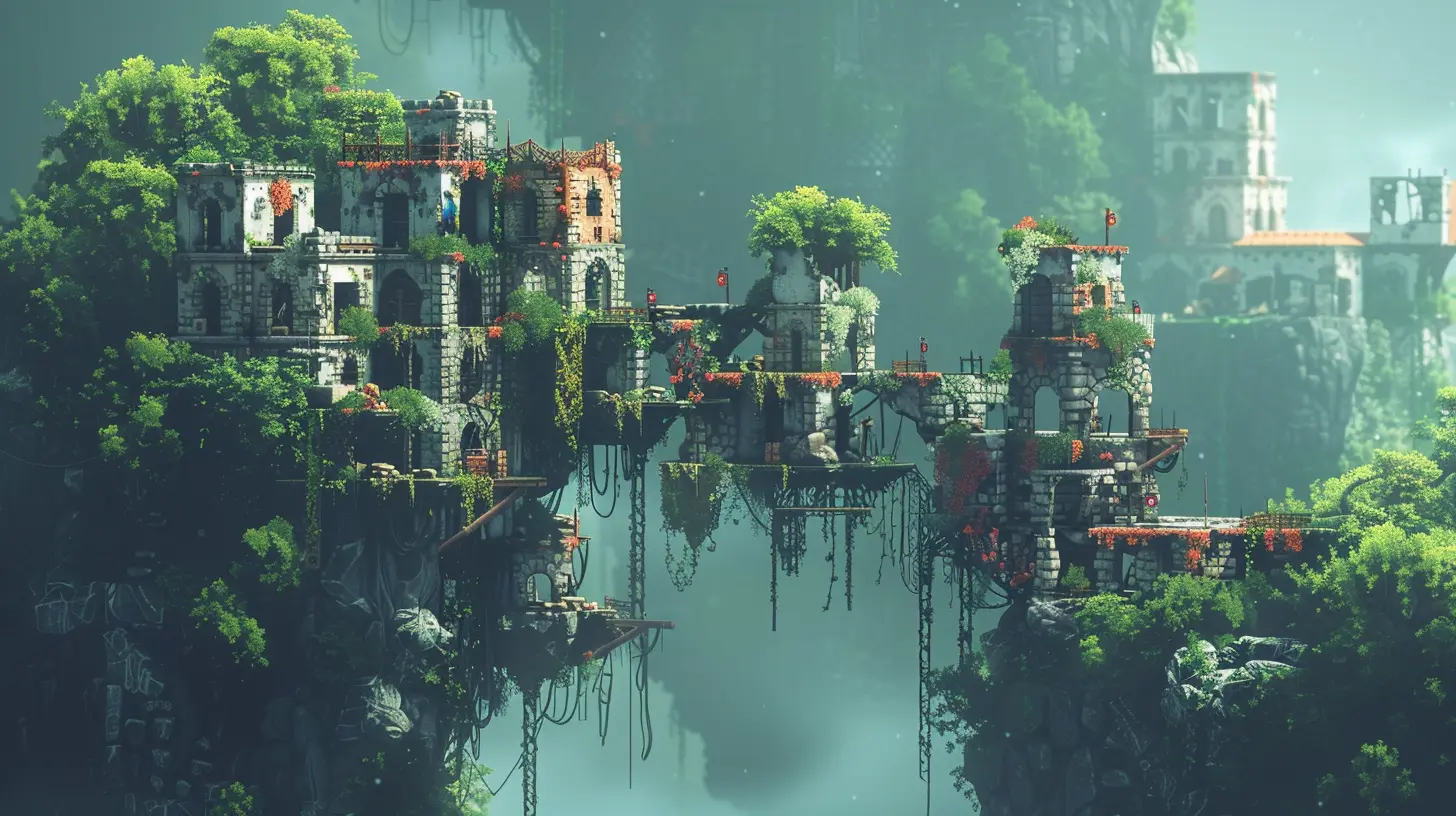The Psychology of Platformer Level Difficulty: What Keeps Us Going?
16 October 2025
Platformer games have been a staple of the gaming industry for decades. From stomping Goombas in Super Mario Bros. to navigating perilous traps in Celeste, these games are synonymous with both joy and frustration. But have you ever stopped to wonder why we keep coming back to them? What is it about their difficulty levels that hooks us in and refuses to let go? Let’s dive into the psychology behind platformer level difficulty and unravel the mysteries of what keeps us pushing forward—even after countless defeats.
Why Do We Love Platformers (Even When They Punish Us)?
At their core, platformers are about movement, timing, and problem-solving. They challenge us to carefully navigate a world filled with obstacles and pitfalls. But here's the kicker: platformers don’t just test our reflexes—they also test our resolve.Think about it. Have you ever been stuck on a level for hours, only to finally stumble upon the perfect run? That exhilarating moment when you finally succeed is what keeps players hooked. But why? The answer lies deep in our psychology.
The Role of Challenge: It’s Not About Winning, It’s About Trying to Win
Let’s face it—platformers are hard. Unlike many modern games that guide you with generous checkpoints and forgiving mechanics, platformers often demand precision and patience. And surprisingly, this challenge is what makes them so satisfying.Psychologists categorize this concept under what’s called the "Flow State". It’s that sweet spot where the challenge of the game matches your skill level. If a platformer is too hard, you’ll rage-quit. If it’s too easy, you’ll get bored. But when a game’s difficulty dances on the edge of frustration and fun, you’re fully immersed.
Think of it like juggling. At first, it’s chaotic, and you might drop everything (a lot). But as you practice, you start to find a rhythm. Eventually, what once seemed impossible feels natural. Platformers work the same way, giving you just enough progress to keep you striving for more.
The Role of Rewards: Why That Gold Coin Feels So Good
Ever wonder why collecting a single coin in a Mario game feels oddly satisfying? It’s because platformers masterfully trigger our brain’s reward system. Each accomplishment—whether it's nabbing a hard-to-reach collectible or surviving a tricky segment—releases dopamine, the "feel-good" chemical in our brains.Platformers break down big challenges into tiny victories. That makes every jump, dodge, or collectible feel like an achievement. Even when you’re failing repeatedly, the idea that success is just one perfect attempt away keeps you chasing the reward.
Trial and Error: The "Just One More Try" Phenomenon
If platformers were a person, they’d be that tough yet encouraging teacher who believes in you but doesn’t mind watching you struggle. Why? Because struggle is part of the design.Platformer difficulty often comes down to trial and error. Sure, it’s infuriating when you miss a jump for the tenth time, but each failure teaches you something valuable. Maybe your timing was slightly off, or you didn’t notice the platform shifting. Slowly, you learn, adapt, and overcome. Before you know it, you’re breezing through a section that once felt impossible.
This constant cycle of failure and improvement is a powerful motivator. It’s why you’ll find yourself saying, “Okay, just one more try,” at 2 AM—even though you’ve been stuck for hours.
The Role of Control: You’re Always in Charge
One fascinating thing about platformers is that they put the responsibility entirely on you. If you miss a jump, there’s no blaming lag or RNG (random number generation). The controls are precise, the mechanics are consistent, and you’re in control of your success.This sense of accountability is empowering. Sure, it’s frustrating when you’re failing, but it also makes your eventual success feel deeply personal. You didn’t just stumble your way through—you earned every victory.
Difficulty As a Narrative: The Story You Create
Platformer games like Celeste and Hollow Knight use difficulty not just as a gameplay mechanic but as a storytelling tool. These challenges reflect the themes of perseverance, growth, and self-discovery.Take Celeste, for example. Climbing the mountain isn’t just a physical challenge—it’s a metaphor for protagonist Madeline’s struggle with her inner demons. Every death, and every success, becomes part of your story as a player. The difficulty makes the journey feel meaningful. After all, what’s a hero’s tale without some adversity?
How Developers Balance Difficulty
Creating a platformer is like being a chef crafting the perfect dish. If a game is too hard, players will give up before experiencing the full course. If it’s too easy, players won’t savor the satisfaction of succeeding.Game designers use several tricks to balance difficulty:
1. Skill-based Progression: Levels increase in difficulty as you grow more skilled, ensuring a gradual learning curve.
2. Forgiving Checkpoints: While classic platformers often lacked checkpoints, modern games offer them strategically to reduce frustration without lowering the stakes.
3. Visual Cues: Subtle design elements like flashing platforms or enemy patterns guide players without outright telling them what to do.
4. Optional Challenges: Many games offer collectibles or harder routes for players seeking an extra challenge. This way, casual players can progress, while hardcore players can test their limits.
The Social Element: Compete, Compare, Conquer
Let’s not forget the social aspect of platformers. Speedrunning communities thrive on these types of games. There’s something thrilling about watching someone beat a level you struggled with in seconds. This competitiveness can inspire players to improve, refine their skills, and even try new ways of playing.Plus, sharing your victories (or failures) with friends adds a communal layer to the experience. Whether it’s bragging about beating a tough level in Cuphead or bonding over mutual frustration, platformers bring people together.
Why Some Games Are Designed to Break You
Ever played a platformer so punishing that you wondered if the developers secretly hate you? Games like Super Meat Boy and Jump King are built to push players to their absolute limits. But here's the thing—they’re not designed to break you; they’re designed to make you better.These "hardcore" platformers thrive on the idea of mastery. They strip away the fluff and force players to rely entirely on skill and muscle memory. While they’re not for everyone, beating one of these games is like earning a trophy for your gaming résumé.
Conclusion: What Keeps Us Going?
So, what’s the psychology behind platformer level difficulty? It’s a mix of challenge, rewards, and self-improvement wrapped in a fun package. These games tap into our primal urge to overcome obstacles and prove to ourselves that we can do it. They frustrate us, teach us, and ultimately reward us in ways that feel genuinely satisfying.The next time you’re stuck on a tricky level, remember this: every failure is just another step toward success. Platformers aren’t just games; they’re a metaphor for life itself. So dust yourself off, hit that retry button, and keep going. You’ve got this.
all images in this post were generated using AI tools
Category:
Platformer GamesAuthor:

Tayla Warner
Discussion
rate this article
1 comments
Cora Powell
The allure of platformers lies in their balance of challenge and reward. Each failed jump teaches resilience, while every victory fuels our determination, illustrating the profound connection between struggle and achievement in our gaming journey.
October 16, 2025 at 3:53 AM

Tayla Warner
Thank you for your insightful comment! You perfectly capture how the blend of challenge and reward in platformers fosters resilience and determination, enriching our gaming experience.


